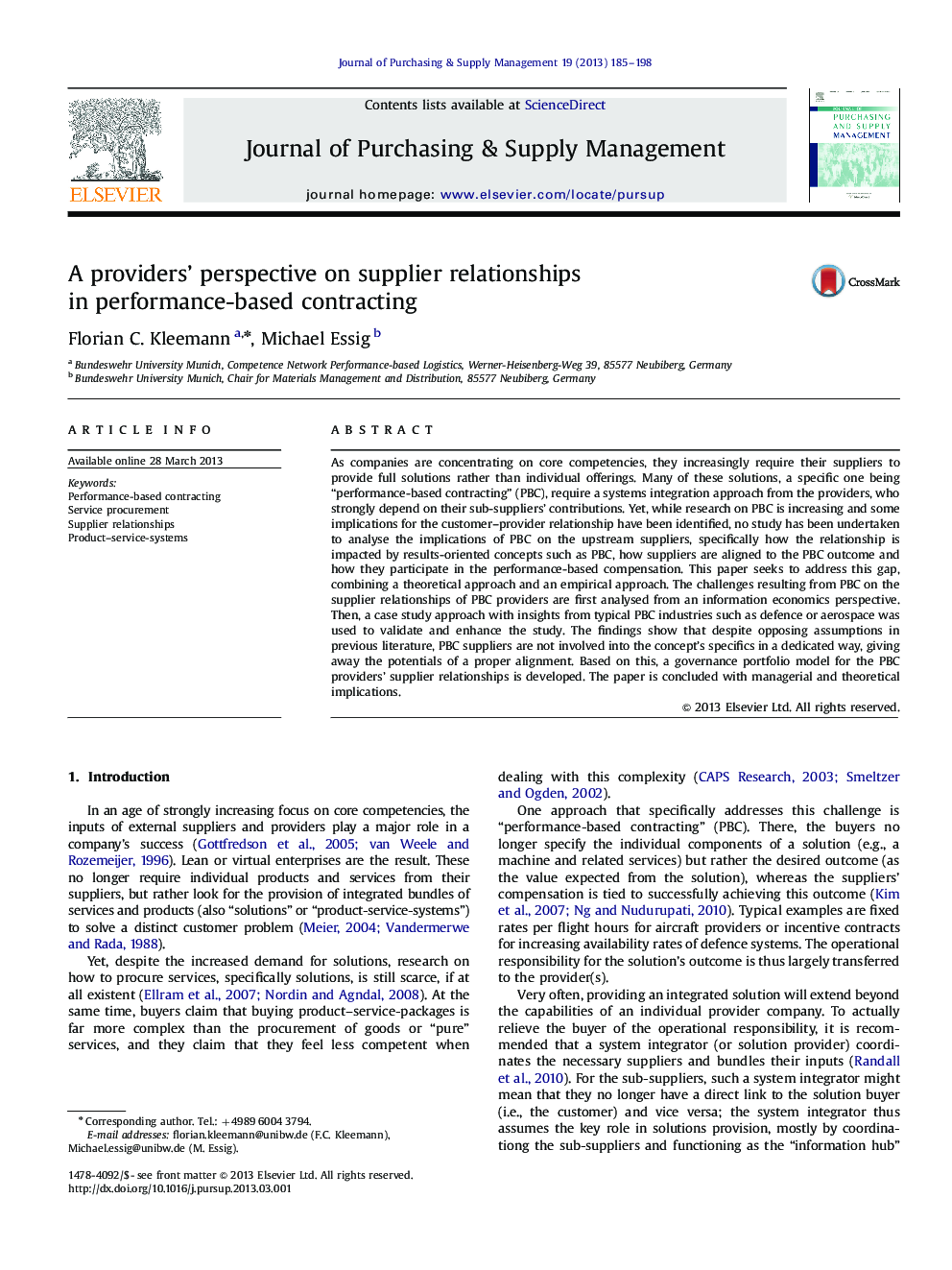| Article ID | Journal | Published Year | Pages | File Type |
|---|---|---|---|---|
| 1020795 | Journal of Purchasing and Supply Management | 2013 | 14 Pages |
•PBC provider–sub-supplier relationships are only partly cooperative.•PBC providers do not involve their sub-suppliers in the aspect of outcome-orientation.•PBC providers do not involve their sub-suppliers in the aspect of performance-compensation.•PBC providers should combine contractual flexibility and relational supplier management.•Information asymmetry and resulting risk avoidance prevents closer sub-supplier involvement.
As companies are concentrating on core competencies, they increasingly require their suppliers to provide full solutions rather than individual offerings. Many of these solutions, a specific one being “performance-based contracting” (PBC), require a systems integration approach from the providers, who strongly depend on their sub-suppliers’ contributions. Yet, while research on PBC is increasing and some implications for the customer–provider relationship have been identified, no study has been undertaken to analyse the implications of PBC on the upstream suppliers, specifically how the relationship is impacted by results-oriented concepts such as PBC, how suppliers are aligned to the PBC outcome and how they participate in the performance-based compensation. This paper seeks to address this gap, combining a theoretical approach and an empirical approach. The challenges resulting from PBC on the supplier relationships of PBC providers are first analysed from an information economics perspective. Then, a case study approach with insights from typical PBC industries such as defence or aerospace was used to validate and enhance the study. The findings show that despite opposing assumptions in previous literature, PBC suppliers are not involved into the concept’s specifics in a dedicated way, giving away the potentials of a proper alignment. Based on this, a governance portfolio model for the PBC providers’ supplier relationships is developed. The paper is concluded with managerial and theoretical implications.
